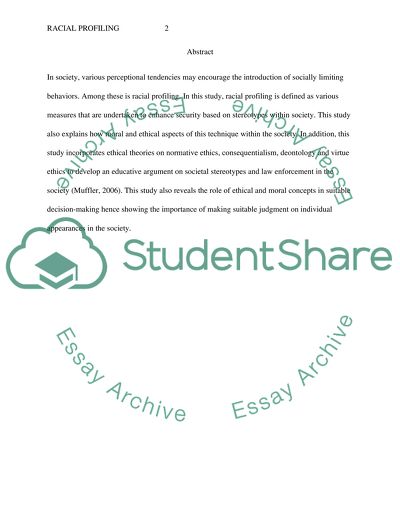Cite this document
(“Racial Profiling Assignment Example | Topics and Well Written Essays - 1500 words”, n.d.)
Retrieved from https://studentshare.org/law/1469439-racial-profiling
Retrieved from https://studentshare.org/law/1469439-racial-profiling
(Racial Profiling Assignment Example | Topics and Well Written Essays - 1500 Words)
https://studentshare.org/law/1469439-racial-profiling.
https://studentshare.org/law/1469439-racial-profiling.
“Racial Profiling Assignment Example | Topics and Well Written Essays - 1500 Words”, n.d. https://studentshare.org/law/1469439-racial-profiling.


